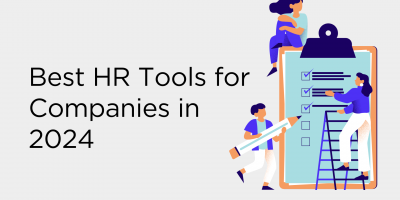
Fraternization in the Workplace
Is workplace fraternization a recipe for disaster or a catalyst for a stronger work culture? The answer isn’t black and white.

The landscape of HR has transformed dramatically over the years. The evolving needs of companies have given rise to the adoption of recent technologies such as AI and cloud computing services.
Technology adoption can be difficult for companies and individuals, including HR. Still, the power of HR technology can provide a business with massive benefits. Below are statistics to help us better understand the modern HR technology landscape.

In the ever-evolving technological landscape, companies often gain an edge through AI and data analysis. Not incorporating them has a detrimental impact on the processes of the organization, employee satisfaction, and ultimately their success.
Browse our curated list of vendors to find the best solution for your needs.
Subscribe to our newsletter for the latest trends, expert tips, and workplace insights!

Is workplace fraternization a recipe for disaster or a catalyst for a stronger work culture? The answer isn’t black and white.

Is there really a nice way to fire someone? While termination will never be easy, it can be done with professionalism and compassion.

Struggling to navigate the maze of HR tools available in 2025? Our review highlights leading solutions for transforming employee management.

Are traditional financial rewards enough to motivate your team, or could the secret to unlocking peak performance lie in understanding the deeper, social value of non-cash incentives?
Used by most of the top employee benefits consultants in the US, Shortlister is where you can find, research and select HR and benefits vendors for your clients.
Shortlister helps you reach your ideal prospects. Claim your free account to control your message and receive employer, consultant and health plan leads.